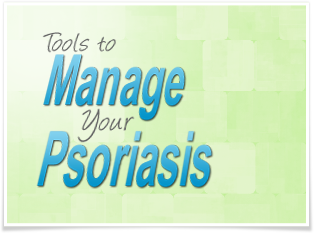About Psoriasis
What is Psoriasis?
Psoriasis is a life-long, non-contagious skin disease that causes dry, red, scaly patches (called lesions) on the skin. These lesions can make the skin itch, burn, flake, or bleed. The most common form, plaque psoriasis, involves patches of raised, red skin covered with a silvery, white, flaky scale.
What Causes Psoriasis?
Psoriasis can appear at any age, can be unpredictable, and can vary in severity. This skin condition not only affects people physically, but emotionally as well. There is no known cure for psoriasis.
We now understand that psoriasis is a condition caused by a misdirection of the immune system. Like a combination lock, three things must occur in order to unlock the psoriasis lurking within our bodies. First, you must have the genes for psoriasis. Second, you must be exposed to a trigger and there are two possibilities: injury to the skin or an infection. Finally, the immune system must be in a particular way that permits the psoriasis to develop and to persist.
Why Did I Get Psoriasis?
What appears to happen is the immune system becomes confused. The immune system is programmed to react to something in or on the skin. The confusion occurs very early in the immune system's process. After the injury, antigen presenting cells (APC) take debris from the wound to a local lymph node. Once it is in the lymph node, the APC interacts with naive T-cells. If the signals are just right, the APC and naive T-cells make direct contact and transform the naive T-cells to be activated and proliferate, dividing rapidly to make many more, identical, activated T-cells.
Activated T-cells will make an extraordinary journey. They leave the lymph node and enter the blood circulatory system. Directed by cytokines, activated T-cells leave the circulatory system and enter the skin - but only when the cytokine signals tell them. Activated T-cells, in the skin, release new cytokines. These new cytokines direct the skin cells to grow faster and thicker. These new cytokines cause more blood to flow through the skin and new blood vessels to form.
Now you have psoriasis - red plaques because of the increased blood to the skin, thick and scaly because the skin is growing faster than normal.
It is because of genetics that the immune system engaged the APC to respond to the antigens. It is because of genetics that the naive T-cells were bombarded, proliferated, and surrounded. And it is because of genetics that the T-cells migrate to the skin, release the cytokine messengers that increase blood flow and cause the skin cells to increase the rate of growth.
The state of the immune system where the APC activates the T-cells will determine how and where psoriasis will occur. Psoriasis may be a few small spots on one area of skin or scattered over the whole body. Psoriasis might be a little patch on the skull or thick plaque with oyster like scale covering 80% of the body. Or anything between.





